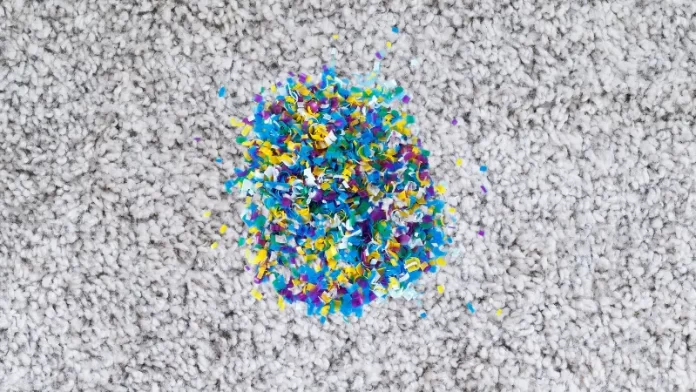A groundbreaking report released this week has shed light on a critical issue plaguing the carpet industry: the presence of potentially harmful microplastic in their products. The report, a collaboration between Revolution Plastics at the University of Portsmouth and sustainability consultancy experts SB+CO, urges immediate action to address this growing concern.
Unlike the clothing industry, which has begun acknowledging and actively working to mitigate microplastic shedding from their products, the carpet industry lags behind. The report reveals a stark reality: while 86 percent of carpet manufacturing companies claim to have sustainability strategies, none have publicly acknowledged the issue of microplastics or taken steps to address it.
Microplastics, known to have detrimental effects on both wildlife and human health, pose a significant risk, particularly in indoor environments. With carpets potentially doubling the concentration of microplastic fibers in homes, and considering that individuals spend up to 90 percent of their lives indoors, the need for action is urgent.
Claudia Proietti from SB+CO highlights a concerning trend: despite the promotion of recycled plastics as an environmentally friendly alternative, carpet companies prioritize attributes like durability and ease of cleaning over addressing microplastic concerns. The report’s findings underscore a critical gap in consumer awareness and industry responsibility.
Nigel Salter, also from SB+CO, emphasizes the lack of transparency regarding health impacts associated with microplastics, urging manufacturers to provide consumers with vital information. Dr. Fay Couceiro from the University of Portsmouth warns against complacency, urging the industry to explore innovative solutions to reduce microplastic release from carpets.
The report calls for collaborative efforts within the industry to standardize testing methods for microplastics and enhance transparency in product labeling. It urges the carpet industry to learn from other sectors and take proactive measures to address this pressing issue.
Dr. Couceiro stresses the importance of consumer awareness and responsible manufacturing practices, emphasizing the need for meaningful action to limit exposure to microplastics. The report serves as a rallying cry for the carpet industry to join the global conversation on microplastics and pave the way for a more sustainable future.
As concerns about microplastics continue to escalate worldwide, the report’s authors emphasize the critical role of all industries in tackling this environmental challenge. It is hoped that this research will not only raise awareness but also prompt decisive action within the carpet industry to confront the issue of microplastics head-on.




